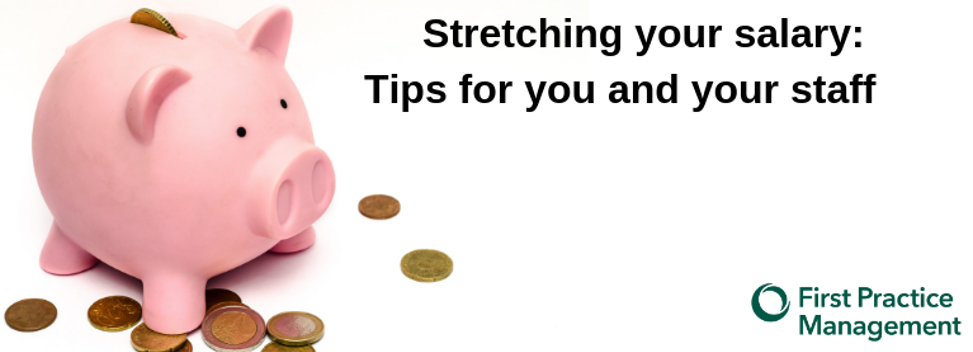
In the current climate of financial uncertainty, it’s increasingly necessary to tighten belts and do more with less. Here are a few simple tips and tricks to help us make the most of our cash.
Using the 50/20/30 rule
This budgeting technique is increasingly popular. The first step is to calculate your income after tax. After working out your expenses and outgoings, aim to spend 50% on needs - food shopping, bills, insurance, essential travel etc. Bear in mind the difference between needs and wants; any payment that you can forego with only minor inconvenience like a Sky package is a want, not a need!
Next, allocate 20% to go towards financial goals such as savings, investments or repaying any credit card payments.
Finally 30% goes on your wants. This may sound like a lot but it’s important to treat yourself sometimes. Bear in mind that if you spend less than this on wants, that money can go back towards meeting your financial goals.
This is just one of many budgeting techniques out there and it may not necessarily work for you, so why not try looking up alternatives that may suit you better.
Making our budgets go further
One idea is to turn off the TV! Stay with us... Cutting down on the amount of television you watch can have a surprising amount of financial benefits: less exposure to tempting ads, a lower electricity bill (and perhaps a lower satellite or cable bill if you downgrade your subscription) and more time to focus on other things in life. We all have a book that we've been meaning to pick up for ages...
Another good tactic for cutting down on spending is to try out the 30-day rule. Basically, you wait a month or so before purchasing something you're concerned might be a frivolous purchase. That way, you have some time between your initial excitement about something to see if you still really want it. Of course we're entitled to treats, but you may find that in those 30 days you’ve found something you’d much prefer to be your payday treat!
Just to prove that the old ideas are often the best, how about the classic tactic of making a list. The temptation to make impulse buys is rampant when we take a trip to the supermarket, but if you map out a meal plan and only buy ingredients for those meals you will save a fortune.
Some quick money-saving tips
- Bring your lunch to work instead of buying. By making your own lunch each day you could potentially save £1,000 a year!
- Reassess your bills - you could save a lot by changing providers. Yes it is tedious, but it is one of the most common ways to save money.
- Switch banks, save more and possibly even get a monetary thank-you for switching.
- If possible, carpool for a fair contribution to petrol costs.
- Sell sell sell! Declutter by putting no-longer wanted items up for sale online.
- Recycle your old tech by selling your old mobile phone or any CDs or DVDs you no longer use.
- Ditch your gym contract and try a pay-as-you-go gym.
- Look for online discounts on days out, shopping and eating out.
- Get cashback for shopping online. By setting up an account with companies like Quidco or Topcashback you can get money back on items you were going to purchase anyway.


0 Comments